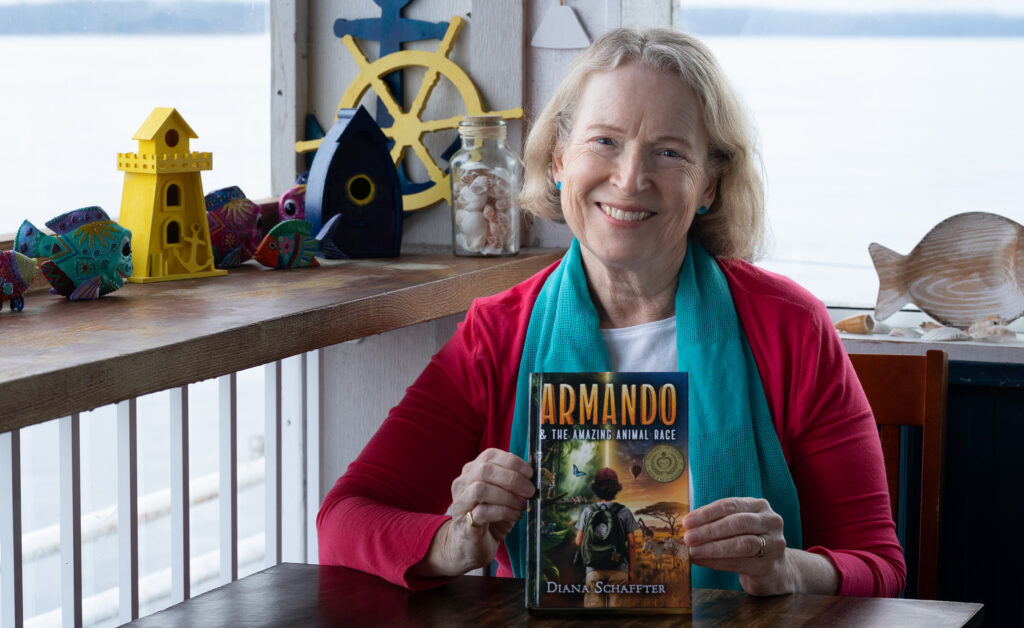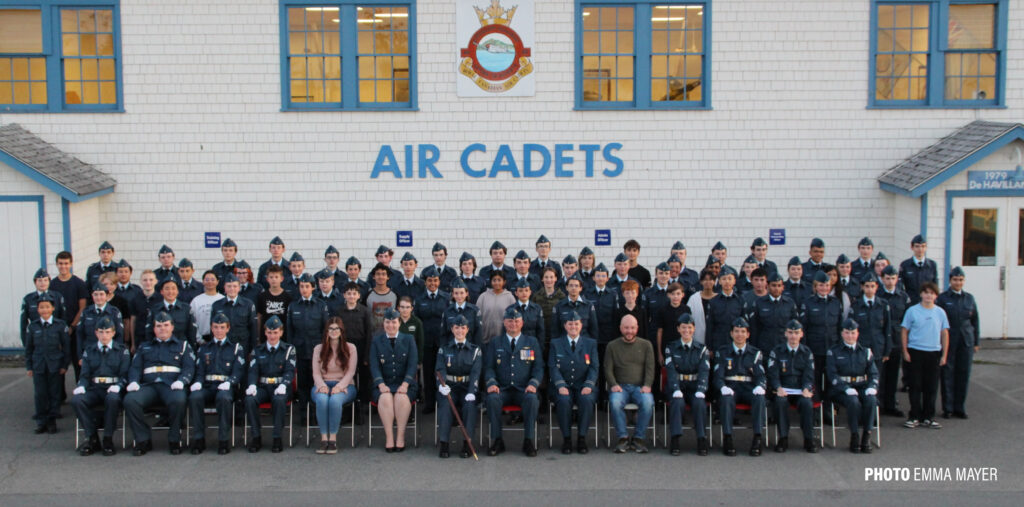by Jo Barnes | photo by Amanda Cribdon Photography –
She has travelled the world and learned to use many languages. Now she travels a new world in which she uses the language of poetry.
North Saanich poet Ulrike Narwani has visited and lived all around the globe, but her discovery of creating poetry, most recently haiku, is taking her to new destinations in self-expression.
“My husband’s work moved us around. A love of flying, which we both shared, took us to many parts of the world,” shares Ulrike. “With poetry, I have discovered this is what I love to do. It’s endlessly fascinating.”
Prior to her move to North Saanich in 2003, Ulrike and her husband Dru not only travelled widely, but called many places home.
“We moved about from Toronto to Stamford Connecticut, England, India, and Thailand,” says Ulrike. “My husband got his pilot license when were in Toronto. We flew in a single-engine Cessna 182 to many interesting places like India, Thailand, Myanmar and Cambodia. Our final flight took us via Malaysia and Indonesia to Australia.”
Experiencing different cultures has been part of Ulrike’s life since childhood. She comes from a Baltic-German background and was born in Poznan in what is now Poland. After the war, her family made their way to Hamburg Germany. With the advent of the Cold War, her parents were looking for a safe place to raise their family and decided to emigrate to Canada in 1952. They first arrived in Montreal, moved to Winnipeg, and eventually settled in Edmonton.
Ulrike grew up with an awareness of the importance of connecting with her heritage and learning the languages of her family.
“We were encouraged to learn German,” says Ulrike.
Language and family history impacted her choices in education.
“I completed a BA Honours in English literature and also studied French and German at that time,” shares Ulrike. “I completed my Masters in Russian literature, with a thesis on Anton Chekhov and my PhD in Slavic Languages and Literatures.”
Travel, education and a love of language shaped Ulrike’s life and influenced her writing. The initial catalyst for her picking up the pen was very personal.
“My first poem was about my father who had severe heart problems. I remembered this scene where he was walking back and forth along the pathway to our home-away-from-home farm property. He was dealing with pain and the desire to lengthen life,” shares Ulrike. “It took me three years, off and on, to write the poem and to get the words right.”
Her arrival to the Saanich Peninsula in 2003 marked a new beginning.
“I was at loose ends. I wanted to connect to the artistic community in Sidney,” she says.
The experience of attending a local poetry reading at Galleon Books and Antiques was a pivotal moment.
“I arrived and took a seat at the back as it was very full. I strained to see who the reader was that night. It was P. K. Page!” shares Ulrike. “That experience stayed with me. It was the beginning for me.”
Attendance at the Planet Earth Poetry reading series and resources offered by Victoria Writers Society helped Ulrike to hone her craft, connect with other writers, and ultimately led to publication of her first collection of poems, “Collecting Silence.”
In 2014 she joined Victoria’s Haiku Arbutus group. She was immediately drawn to this type of poetry which is a three-line form demanding precision and economy of words.
“Haiku is in the present, involves the senses, and zeroes in on a moment of experience evoking a core emotion,” she comments.
She is also learning other traditional Japanese short poetry forms, like haibun and tanka. Some of her work has garnered awards too, like her winning entry in the 2020 Vancouver Cherry Blossom Festival Haiku Invitational.
Writing poetry, while rewarding, requires patience and persistence.
“A poem keeps circling and I need to find the right words,” says Ulrike. “I revise a lot. Very rarely does a poem come ready made.”
Currently Ulrike is working hard on a new manuscript.
“I’m looking at beginnings, at birth and love, the slow opening out to the wider world with its devastations and losses. The vision increasingly darkens. Still, throughout, poems glimmer with life’s underlying resilience and tenacity,” she shares.
For many, the reality of living in a pandemic world has been challenging. For Ulrike, writing has helped.
“We are mentally on guard and feeling fenced in right now,” she notes. “The pandemic, it circles around in the mind. I try to find ways to put it down on paper. That gives me a sense of freedom.”
Capturing fleeting thoughts in poetry is a satisfying pursuit for Ulrike. Each day she travels a new flight path, not in the skies, but in literature. Her words are taking wing.




